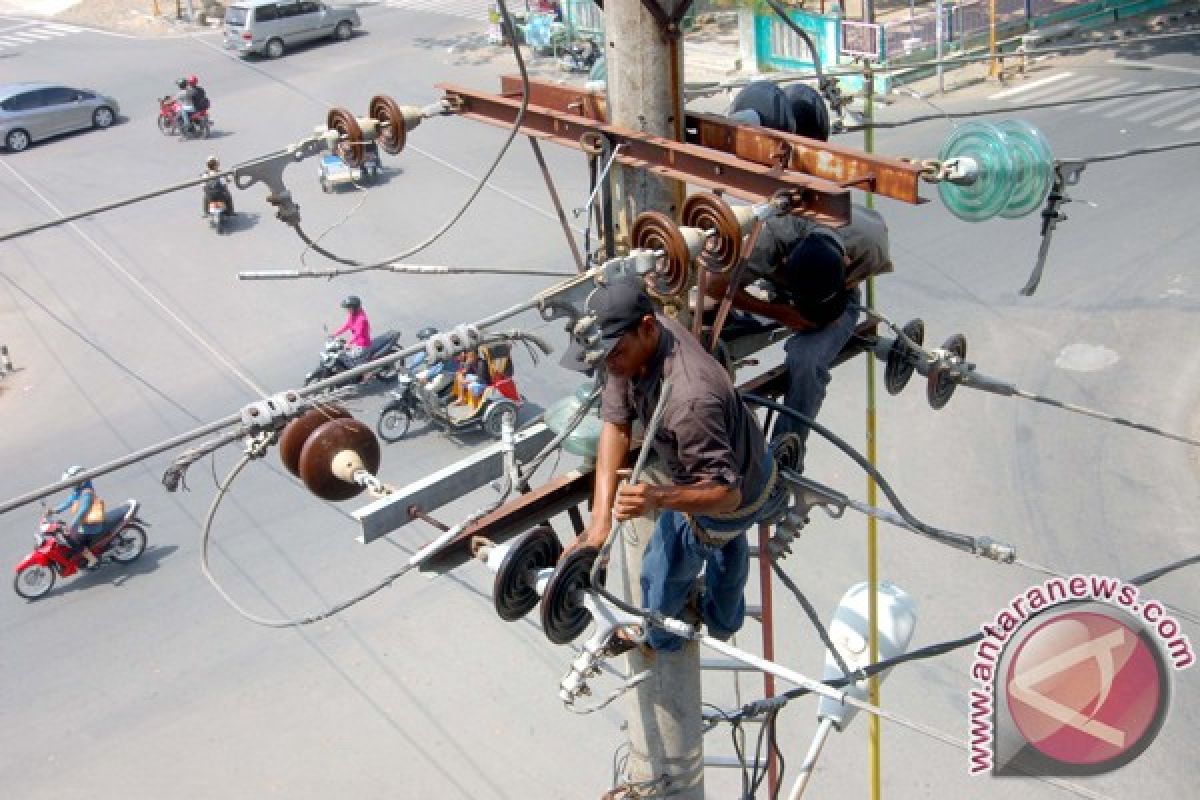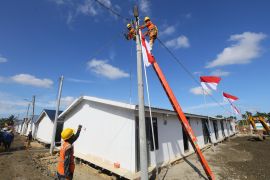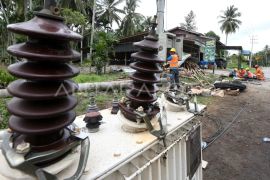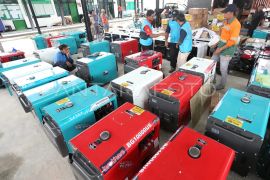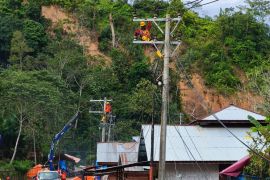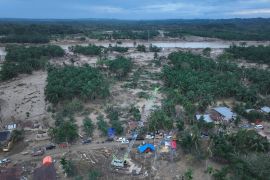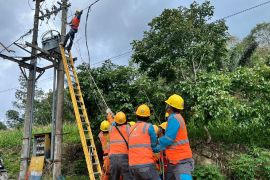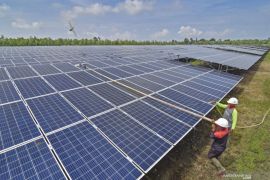At a meeting in mid-March, the House of Representatives (DPR) approved the government`s proposal to postpone the power tariff by 3 percent once every quarter, beginning May 2012.
Both the government and the parliament agreed to reconsider the proposal for a power tariff hike at the end of this year or early next year.
All factions in the House Commission VII had earlier asked the government to postpone the electrical power hike on the grounds that it would add to the burden of the people who would soon have to spend more on commodities due to the looming rise in fuel oil prices.
"The reason behind their request for the postponement is that the people already have to shoulder the burden of the fuel oil price hike beginning April 1," said chief of the House Commission VII Teuku Riefky Harsya who led the meeting.
The government plans to increase the prices of subsidized premium gasoline and diesel oil respectively by Rp1,500 to Rp6,000 a liter to reduce rising oil subsidy due to the global oil price hike.
Coordinating Minister for Economic Affairs Hatta Rajasa said budget allocations for electricity subsidy in the draft revision of the 2012 state budget might soar by Rp5 trillion if the plan to raise electrical power tariff was put on hold this year.
Realizing that the electrical power tariff hike would deal a blow to the industrial sector, he said that the plan to raise the electricity tariff should be postponed more so because the government is already raising the prices of subsidized premium gasoline and diesel oil.
"In essence, don`t let our industries and communities suffer any further," he said.
Earlier, the Association of Indonesian Businessmen (Apindo) rejected the government`s plan to raise base electricity tariff and subsidized fuel oil prices together.
"We ask (the government) to postpone the plan to increase base electricity tariff this year because if production cost is too high it may lead to the reduction of employees," Apindo Chairman Sofjan Wanandi had said.
The government`s plan to raise the electricity tariff by 10 percent for business and industry groups could also disrupt the performance of companies and would also reduce the competitiveness of domestic production, he said.
Sofyan said that when production costs rise it might lead to reduced sales, resulting in low production and also a reduction in labor.
"There is no other way if the government insists on raising the tariff. We are already unable to compete with cheaper imported goods," he said.
He said that smaller companies would not be able to shoulder the burden, so there was the possibility of such companies being shut down, and the first to be affected would be small and medium business units.
"These conditions will not only raise the number of the unemployed but also increase poverty. The national economy believed to be improving now will also slow down," he said.
The electricity tariff increase would impact the economy badly, especially with the people`s declining purchasing power due to the fuel price hike, he said.
Under the draft revision of the 2012 state budget, electricity subsidy is projected to reach Rp93.1 trillion, up by 107 percent or Rp48.1 trillion from Rp44.9 trillion in the 2011 state budget.
Through the financial notes of the draft revision of the 2012 state budget the government proposes an electricity subsidy of Rp93.05 trillion, plus an increase of Rp5 trillion if the planned electrical power tariff hike is put on hold.
"If the target (of electricity subsidy) is slashed to Rp65 trillion from Rp98 trillion and electricity tariff is not raised, the subsidy may increase to Rp98 trillion from Rp93 trillion. We need to respond to the difference between Rp65 trillion and Rp68 trillion that may become a fiscal risk," Finance Minister Agus Martowardojo said.
Energy and Mineral Resources Minister Jero Wacik said the delayed operation of coal-fired power plants has lowered PT PLN`s coal consumption to 39.37 million tons from 48.06 million tons previously, raising electricity subsidy by Rp26.72 trillion.
The other factors are the delayed operation of a liquefied natural gas (LNG) terminal that caused gas supplies to power plants to fall to 351.5 trillion British thermal unit (TBTU) from 372.5 TBTU as originally planned. As a result, electricity subsidy was increased by Rp8.28 trillion.
The electricity subsidy was also increased by Rp6.98 trillion due to a decline in electrical power sales to 170.3 trillion Watt hour (TWh) from 173.77 TWh.
The other factor is an increase in Indonesian crude price (ICP) to US$105 a barrel from US$90 a barrel, raising electricity subsidy by Rp4.7 trillion. The increase in rents for generator sets to 11.41 TWh from 7.25 TWh has raised electricity subsidy by Rp3.51 trillion, and an increase in power purchase from private developers to 43.03 TWh from 40.71 TWh by Rp1.4 trillion.
State electricity firm PT Perusahaan Listrik Negara (PLN) has predicted that its 2012 coal consumption would decline 20 percent to 43 million tons due to the delayed operation of several coal-fired power plants.
PLN had originally projected its coal consumption this year at 54 million tons but later revised its coal consumption forecast to 43 million tons, head of PT PLN`s coal division Helmi Najamudin said.
(Uu.S012/INE/KR-BSR/O001)
Reporter: by Suharto
Editor: Priyambodo RH
Copyright © ANTARA 2012
